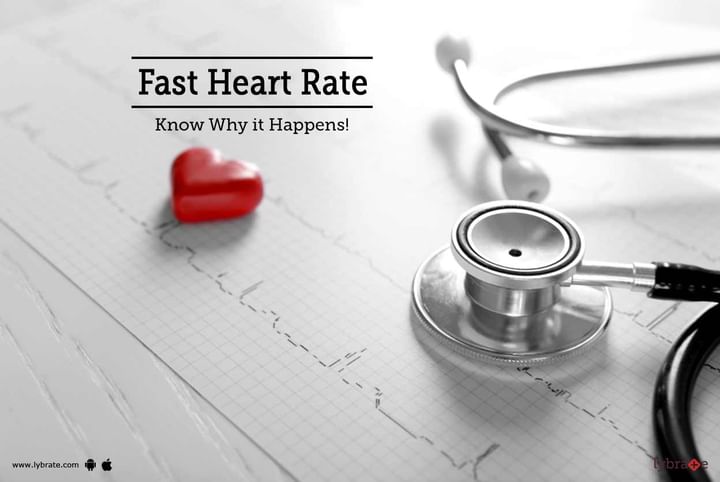Fast Heart Rate - Know Why it Happens!
Is your heart rate more than 100 beats per minute? This could be tachycardia- a condition in which your heartbeat is faster than normal. It is a serious condition and can increase the risk of many heart problems like stroke, heart attack or even sudden death.
Symptoms of tachycardia
Tachycardia is often misunderstood as palpitations. It is important to understand that palpitations are one of the early signs of tachycardia. Few of the other symptoms that will help you understand this condition are:
-
Pulse rate more than 100 per minute
-
Confusion or dizziness
-
Weakness or fainting
-
Heart failure or cardiac arrest
What causes tachycardia?
Tachycardia could be situational, conditional or can result from any medical condition. Here is a list of common reasons that can increase your pulse:
-
Allergic reaction to certain medications or drugs
-
Congenital abnormalities or any other heart disorders
-
Too much of caffeine, alcohol or smoking
-
Electrolyte imbalance
-
Lung diseases
-
Stress especially emotional
-
Extensive physical exercises or workout
Tests to check for tachycardia
In case your heart is beating at a fast pace, your doctor will suggest a few tests to confirm tachycardia. Here is the list of tests that you may have to take:
-
Physical examination and history: Family history or history of heart problems or any other chronic condition helps in understanding the risk of tachycardia. Your doctor will also check for any kind of fluid retention around the chest area.
-
Electrocardiogram (EKG): It is used to check the baseline heart rhythm, if it is normal or abnormal.
-
Holter monitor: This is a device that is used to monitor the pulse for 24 hours. This will give your doctor a better understanding of your heart’s functioning.
-
Blood test: Tachycardia could also happen because of anemia, electrolyte imbalance or thyroid disorder. Therefore, it is important to undergo blood test to rule out these causes.
-
Echocardiogram and EP study: These tests are used to check any structural or functional abnormality of heart.
Tachycardia can cause serious damage to the heart and it is important to check for early signs and go for regular health check-ups.


+1.svg)
